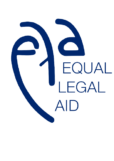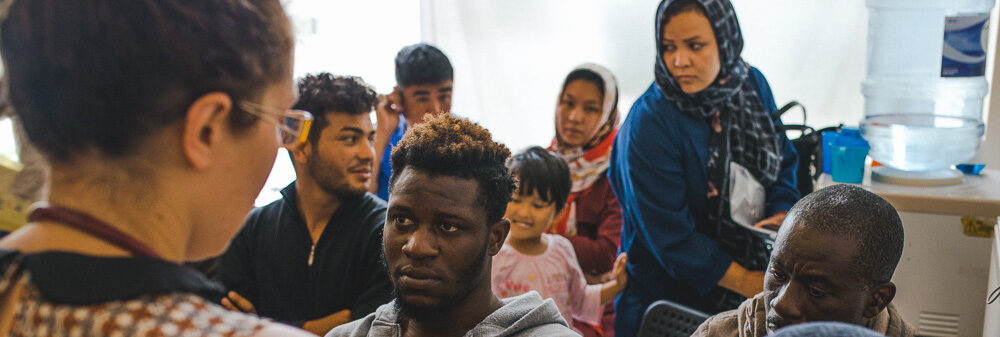
This article was published in Plein Droit no. 137, June 2023. (FR)
Download the English version in PDF here
Recent reforms to the Greek appeals body reviewing rejections of international protection have undermined the quality of asylum examinations. Equal Legal Aid (ELA), through its lawyers’ work on 61 appeal cases between July 2021 and December 2022, has directly observed and documented this decline.
The European Directive on common procedures for granting and withdrawing international protection (1) obliges Member States to guarantee applicants the right to an effective remedy before a court or tribunal against a first-instance rejection of their asylum application. This right includes “a full and ex nunc examination of both facts and points of law, including, where applicable, an examination of the need for international protection.”
In order to comply with the requirements of the Directive, Greece established a procedure allowing appeals against the rejection of an asylum application before the Appeals Authority. Created by a 2011 law (2), this body only began operating in 2013. Based solely in Athens, the Appeals Authority reviews, at second instance, appeals against first-instance decisions issued by the Greek Asylum Service. Following its examination, which covers both facts and points of law, it issues a reasoned decision on the applicant’s request for international protection.
It is composed of 21 independent Appeals Committees, which sit in a panel or, if the application has been processed under the accelerated procedure, or deemed “manifestly unfounded” or inadmissible, before a single judge. When the Appeals Authority was created, the independent Appeals Committees were composed of three members (3): a chairperson, referred to as “highly qualified,” meaning someone with particular expertise or experience in asylum, human rights, or international law, and two members who were academics with degrees in law, political science, or social sciences, also possessing significant experience in the field of international protection and knowledge of human rights issues.
In 2016, following the conclusion of the EU–Turkey agreement, and while the Appeals Authority had been operating for three years, a new law (4) entered into force, introducing a major change in the composition of the independent committees: the two academics were replaced by serving administrative judges. Three years later, a legislative reform completed this reform (5) of the committees’ composition, which thereafter consisted solely of serving administrative judges. These successive changes played a key role in shaping the evolution of the decisions issued by the Appeals Authority.
When, in 2013, the Appeals Committees began operating alongside the new Greek Asylum Service, asylum professionals welcomed the fact that Greece was finally equipped with an effective appeal procedure, capable of protecting the rights of displaced people and addressing previous shortcomings, both in terms of the quality of case processing and the length of procedures. Indeed, during its first three years of operation, the recognition rates for international protection status increased compared to the previous procedure, and the quality of decisions improved considerably.
However, the revised composition of the committees in 2016, combined with the constant changes to the asylum procedure following the EU–Turkey agreement, marked a turning point. And this was not a coincidental effect but a deliberate political decision. As a result, the work of the Appeals Authority has increasingly been characterised by the high number of cases submitted to it, as well as by the pressure it faces to issue decisions as quickly as possible.
Since 2019, the law has set strict numerical targets: the time limits for ruling have been reduced for the various appeals committees (6) . The following year, a new reform was introduced that further shortened these deadlines (7). Each member of the 21 committees must now examine between 25 and 30 cases per month and issue a decision within 10 to 30 days, depending on the procedure applied in each case (regular or accelerated procedure, inadmissible application, detained applicant). (8)
The renewed composition of the committees, along with their workload and the pressure they face, has a direct impact on the recognition rate of international protection in Greece. Over the past ten years, the number of negative decisions issued by the Appeals Authority has risen significantly: from 68% negative decisions in 2012, the rejection rate increased to 94% in 2022.
Similarly, the number of appeals examined by the authority has also increased significantly: 1,650 appeals filed in 2012 compared to more than 10,000 in 2022 (9). Since February 2020, the Greek administrative authorities have suspended the publication, by the Asylum Service, of statistical information that was previously made available on a monthly basis on its website. However, the report published by the European Union Agency for Asylum (EUAA) provides a sense of the scale of the phenomenon: “In 2020, Greece issued a record number of second-instance or higher-level decisions, nearly 24,000, or 10% of the EU total, and almost twice as many as in 2019. This increase, in fact, reflects a rise in negative decisions, which accounted for 94% of all decisions issued.” (10)
In 2021, there was a 34% decrease in appeal decisions compared to 2020 (11). A report (12) further notes that in Greece, “most appeals are rejected at the second instance. Of all second-instance decisions issued in 2021, only 6.6% (730) resulted in the granting of asylum, 10.24% (1,133) in the granting of subsidiary protection, and 83.15% (9,196) in a negative decision. During 2021, 532 appeals were rejected as ‘manifestly unfounded’ without an examination on the merits, on the grounds that applicants had failed to comply with the obligation of personal appearance of the applicant or their designated lawyer before the Appeals Authority, or to present a residence certificate (13), which constitutes a disproportionate administrative burden imposed on applicants.”
Since 2019, recognition rates for international protection status have dropped dramatically, both compared to the number of decisions issued by the Appeals Committees in previous years and to the average across other EU Member States, which is clearly a matter of concern. The deterioration of the asylum situation in Greece is also evident in the difficulties and obstacles faced by applicants for international protection during the appeal procedure, particularly with regard to access to the institution on the one hand, and the examination of applications on the other.
Obstacles to accessing the appeals authority
The fact that Greece has only one Appeals Authority, which sits exclusively in Athens, is a major obstacle for applicants. On the day before the hearing, those living in remote parts of the country must undertake a long and costly journey to appear in person before this authority, as required by law. If they cannot afford to travel to Athens, they must find a lawyer to represent them, which is also expensive. If they fail to meet this obligation, their appeal will be dismissed as “manifestly unfounded.”
Moreover, applicants often lack understanding of this body’s role, as there is no interpreter present during the hearing and no one to explain the procedure’s implications to them. Their participation in the hearing is reduced to being just a name on the docket, waiting to be called and to show their asylum card in order to confirm their presence. In short, it is an impersonal, expedited procedure, with no exchange and no questions relating to their asylum narrative.
In addition, the procedure before the committee takes place mainly in writing and relies solely on the information and documents already contained in the applicant’s file (14). Hearings with applicants take place only exceptionally, under conditions narrowly defined by law (15), for example, in the case of an appeal against a decision to withdraw status. This means that even if the applicant appears in person before the Appeals Committee, they are unable to properly present their claims.
However, if an applicant has the financial means to hire a lawyer, the latter may be allowed to speak and briefly present their client’s arguments. But this cannot be considered proper legal representation before the committee, as the Asylum Service does not inform applicants of this possibility, which, moreover, is not explicitly mentioned in the law (16). In practice, this procedure, by depriving asylum seekers of their right to direct access to an appeals body to argue their case, violates the principle of the right to an effective remedy.
A cut-rate review
The structural changes to the Appeals Authority and the conditions under which the asylum procedure takes place have led to a substantial deterioration in the quality of the examination of applications for international protection. There is no doubt that the workload imposed on the Appeals Committees contributes to this decline. The pressure placed on judges, in terms of the volume of cases to be reviewed and the tight deadlines for processing them, has seriously undermined their ability to assess each case in all its dimensions and specificities.
The obligation under European law to conduct a full and ex nunc examination of each case requires judges to approach every file on an individual basis and with an open mind. However, there is a clear tendency toward stereotyping, or even standardisation (17), in the reasoning of decisions. In many cases, this manifests itself in a word-for-word reproduction of the first-instance decision or of another case concerning individuals from the same country (as often happens with applicants from countries such as Pakistan or Bangladesh, considered “safe”). At times, the reasoning does not follow a logical argument, a level of professional quality that one would reasonably expect from a committee composed of administrative judges. These irregularities are easily detectable when comparing first- and second-instance decisions (for example, the use of a masculine pronoun in parts of a decision when the applicant is a woman; similarly, errors regarding the applicant’s country of origin are frequently observed).
Country-of-origin information is one of the key elements analysed during the asylum procedure to assess protection needs. In this area, it is not uncommon for the information used by the Appeals Authority to be several years old, due to a lack of regular updates, and therefore ineffective for assessing the case under review (as is the case, for example, with asylum seekers from Somalia). It can also be observed that there is no consistent approach to situations with comparable characteristics and backgrounds, nor any reference to or use of judicial precedents. One must question why one person is granted refugee status or subsidiary protection while another, in a similar situation and invoking the same grounds for asylum, is denied. The treatment of applications from women who have undergone female genital mutilation in their country of origin, or who are victims of domestic or gender-based violence, is emblematic of this discretionary, if not arbitrary, handling of certain cases.
Since its creation, ELA’s experience has enabled its team to observe the continuous erosion of the right to asylum, in light of the increasing violations of the rights of displaced persons in Northern Greece. Contributing to this is the lack of serious examination of asylum applications at first instance, which leads to the rejection or non-admission of certain claims, particularly those made by people who have transited through a country designated as a “safe third country,” such as Turkey, Albania, or North Macedonia.
In this context, the evolution of the Appeals Authority in recent years has been a decisive factor in the worsening situation of asylum seekers in Greece. To the dysfunctions described above must be added the difficulties in accessing the appeals procedure, due to shorter deadlines for lodging certain appeals, the removal of their suspensive effect, and the requirement of representation by a lawyer. This last point deserves emphasis, as until the 2019 legislative reform, summary introductory appeals could be drafted and signed by the applicants themselves. The elimination of this possibility carries serious consequences, particularly on the Aegean islands, where lawyers trained in immigration law are very scarce and access to free legal assistance is almost non-existent.
After a negative decision by the Appeals Authority, it is still possible to challenge it before an administrative court or to file a request for the asylum application to be reconsidered. Even if the chances of success in these procedures are slim, if not illusory, ELA’s lawyers continue to defend cases on appeal on the basis of well-argued, contextualised, and up-to-date submissions. This is an ethical choice, an act of advocacy, which does not preclude denouncing the system and continuing to monitor it: as a relatively new institution, the functioning of the Appeals Authority could still be subject to change.
- Directive 2005/85/EC, which was substantially amended by Directive 2013/32/EU.
- Law No. 3907/2011, Article 3. Previously, there were appeals committees operating under the Ministry of Civil Protection (Presidential Decree No. 114/2010, Article 26). With this new law, the Greek State sought to modernize asylum procedures and comply with European Directive 2005/85/EC. Thus, an Asylum Service and an Appeals Authority were created. In the past, the competent authority had been the Aliens Department, which was under the Greek Ministry of Public Order. This department was responsible for receiving and examining, at first instance, all applications for international protection. Police officers were in charge of conducting interviews and drafting decisions. Since then, a new independent service has taken over these responsibilities.
- Law No. 3907/2011, Article 3.
- Law No. 4375/2016, Article 5, § 2.
- Law No. 4636/2019, Article 116, which amended Article 5, § 4 of Law No. 4375/2016.
- Law No. 4636/2019, Articles 95 § 7 and 101.
- Law No. 4686/2020, Articles 22 and 25.
- Law No. 4939/2022, Articles 100 § 7 and 106.
- The data for the years 2012–2021 are taken from reports produced by the Asylum Information Database (AIDA), Country Report: Greece. The 2022 data come from Refugee Support Aegean (RSA).
- Annual Report on the Situation of Asylum in the European Union, 2021, p. 125.
- EUAA, Data Analysis of Decisions on Asylum Applications in Appeal or Review in 2021, 2022.
- Asylum Information Database, Country Report: Greece, Update 2021, 2022.
- For example, individuals residing in an asylum seekers’ reception center may obtain a certificate from the director upon explicit request and send it by email to the secretariat of the Appeals Committee before the hearing.
- The procedure was amended by Law No. 4375/2016. Until that point, the applicant had the opportunity to present their application orally before the Appeals Committee.
- Law No. 4939/2022, Articles 102 § 3 and 4.
- For instance, in December 2022, a Guinean applicant saw his claim initially rejected by the Asylum Service but later overturned by an Appeals Committee after his case was argued by a partner lawyer of our association, based in Athens. Although legal representation at the hearing is not mandatory, as it is during the asylum interview, experience shows that having a lawyer present is crucial and often makes the difference in securing a favorable decision.
- See Jessica Hambly and Nick Gill, “Law and Speed: Asylum Appeals and the Techniques and Consequences of Legal Quickening,” Journal of Law and Society, vol. 47, March 2020.
Athina Kalogiri, a lawyer with ELA, has recently written a legal briefing on the malfunctioning of the appeal procedure in Greece, published in July in the Plein Droit review.

